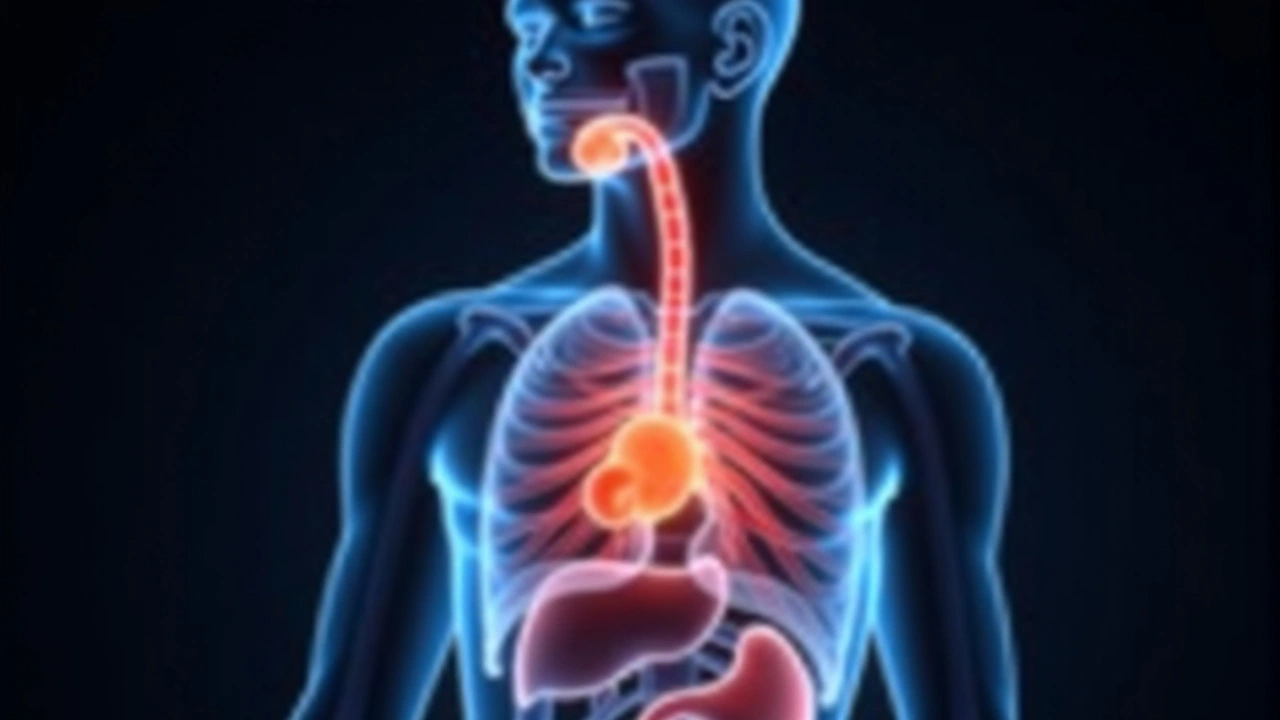Esophageal Cancer — What You Need to Know Now
Hard truth: when esophageal cancer is found early, treatment works much better. But many people ignore the first signs because they seem small — a bit of heartburn, swallowing that feels awkward. This page gives clear steps you can take if something feels off and the basics you should know about causes, tests, and treatments.
Signs to watch
Difficulty swallowing solid food or feeling like food gets stuck (dysphagia) is the most common early warning. Other red flags: unexplained weight loss, persistent heartburn or acid reflux, chest pain that isn’t heart-related, hoarseness or a long-lasting cough, and frequent vomiting. If any of these last more than a few weeks, see a doctor — especially if you smoke, drink heavily, or have long-term GERD.
How doctors find it
Your doctor will usually start with a physical exam and questions about symptoms and risk factors. The main tests are upper endoscopy with biopsy (they look at the esophagus and take tissue), barium swallow X-ray to watch how you swallow, and imaging like CT or PET scans to check for spread. Biopsy results tell if the tumor is squamous cell carcinoma or adenocarcinoma — that matters for treatment choices.
Treatment depends on stage. Early tumors confined to the lining can sometimes be removed with endoscopic mucosal resection. Localized tumors often need surgery (esophagectomy) plus chemotherapy or radiation. Advanced cases may get combined chemo, targeted drugs, or immunotherapy to shrink disease and ease symptoms. Your care team will balance removing cancer and keeping you able to eat and live well.
Nutrition matters. Trouble swallowing can cause fast weight loss, which weakens you before or during treatment. Meet with a dietitian early. Small, calorie-dense meals, softer foods, or temporary feeding tubes can keep nutrition stable during intense treatment.
Reduce risks where you can: stop smoking, cut back on alcohol, treat chronic acid reflux, and work on a healthy weight. If you have Barrett’s esophagus (a precancer change from long-term reflux), regular surveillance with endoscopy can catch changes before cancer develops.
Getting a second opinion makes sense if your recommended plan includes major surgery or long chemo courses. Ask for clear details: expected benefits, recovery time, potential side effects, and how treatment affects swallowing and nutrition.
Support counts. Look for local cancer support groups, talk to your care team about palliative services to manage symptoms, and bring a family member or friend to appointments — two heads remember more than one.
If you notice swallowing trouble, unexplained weight loss, or persistent reflux that won’t respond to treatment, don’t wait. Early evaluation gives you more options and better outcomes.

New Hope for Esophageal Cancer Patients: Roswell Park's Clinical Trials with Propranolol
Researchers at Roswell Park have launched two phase 2 clinical trials to explore whether adding the beta blocker propranolol can enhance the effectiveness of checkpoint inhibitors in esophageal cancer patients. These trials aim to offer new hope for patients facing poor survival rates due to advanced disease stages at diagnosis.
Read more